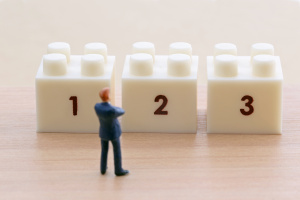
Though I passed out from college way back in 1999, I have worked very closely with Tweens and Teens as a part of our #MissionInspire1Million Initiative. And quite recently I had the opportunity to re-engage with students from around the world through several Webinars. Let me share with you a few insights that I have had along this journey.
Based on my experience I think students could be slotted into one of the below categories.
Category 1) Purpose only: One and only priority is to get good grades. Obsessed about academic glory, spends every waking moment studying. Ends up scoring well. But lacks critical life skills as exposure is limited.
Category 2) Pleasure only: Life is a paid vacation. One and only priority is to have fun. Ends up dropping out or barely scraping through. Less than 10% of time is spent on studies, that too grudgingly.
Category 3) Purpose followed by meaningful Pleasure: They want to get excellent grades. But they also want to do well in co curricular activities, have great friends and good clean fun. They spend around 60% to 70% time on studies and the rest for their meaningful pursuits.
It goes without saying as to who succeeds in the long term. But what do you think?
Category 1 gets to enter the best colleges and gets into choicest organizations. But then things get harder. They are often hired for their exceptional technical skills. But they often stuck because of their lack of life skills.
Category 2 either lives a medicocre life, never realising their full potential experiencing regret and self hate. Or in some cases, they go through severe struggles later in life and gets back on track. These struggles are often triggered by painful life changing situations.
Category 3 goes on to build great relationships at work and delivers wonderful results. They take up leadership roles and live impactful lives amassing respect and adulation.
I dont want to discuss category 1 here. They could be coached and improved while at work. At least they havent missed the bus. So let me look at category 2 a little more closely.
Why do students end up in category 2?
Research shows that initially, its because of misplaced priorities. Every human being has 6 needs. Certainty, fun/adventure, love/belonging, significance, growth and contribution. Some of us crave fun and adventure intensely. Too intensely that we dont really bother about the other needs. But once they move too much down that thrilling road, they realize that it is really hard to come back and start afresh. This lack of confidence and anxiety combined will motivate them to then use pleasure seeking as an escape mechanism. Why do they do that. Well, when they fare poorly, they can justify by saying- “I failed because I didn’t study, because I am not a nerd.” They do this to avoid getting judged as incompetent. And this becomes a vicious cycle. They will seek love and belonging from their peer group and will strive to seek significance by dropping even farther. The problem is that they go so deep down the hole, that they fail to satisfy their needs for certainty, growth and contribution forever. Another crippling danger is the everlasting effect on their self image. Once they start deeming themselves as slackers, the belief becomes a life trap. To maintain this belief their minds will get them to self sabotage themselves till they repeat the same pattern again and again, be at work or in relationships. Scary.
That’s why we should work closely with category 2 students. Instead of writing them off or judging them, we should try earnestly to bond with them and help them to satisfy their unmet needs for love/connection and significance using productive means. We should build their confidence and convince them that they could bounce back. The secret is to get them to change their self image. By getting them to taste small victories over time accompanied with genuine appreciation and and respect from their significant others, we should be able to get them on board. And once we succeed in changing their self image even by a trifle, they will automatically follow the track back. We could then convert the vicious cycle into its virtuous counterpart.
Dr. Sangeeth Ibrahim
